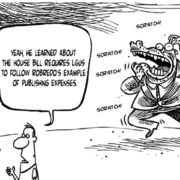WITH a strong currency, an innovative and energetic economy, and an increase in remittances and tax revenues, the Philippines is keen in avoiding financial mistakes made in the past.
With President Aquino at the helm, the Philippine economy is poised to emerge as an economic prospect and attractive business destination.
The country is a good option for its low start-up costs for new businesses, desirable workforce, and geographical proximity to other Asian markets. Foreign investments are more than welcome in the country.
Its local economy proved comparatively well-equipped to weather the recent global financial crisis, partly as a result of the efforts to control the fiscal deficit, bring down debt ratios, and adopt internationally-accepted banking sector capital adequacy standards.
The economy sustained its significant run this year, growing by 5.9 percent in the second quarter. The growth, measured by the Gross Domestic Product (GDP), is remarkably higher than the 3.6 percent recorded last year.
Meanwhile, the country’s business process outsourcing (BPO) industry currently accounts for about 15% of the global outsourcing market and has been the fastest-growing segment of the economy.
According to Socio-Economic Planning Secretary Arsenio Balisacan, the country’s strong economic showing is attributed to increased business confidence, strong employment creation, and accelerated government spending.
“We are optimistic that the resiliency of our economy, as reflected by the strong real GDP performance in the two quarters of 2012, will not dissipate in the succeeding quarters despite the uncertainties,” he said.
In a survey recently released by the US Chamber of Commerce and The American Chambers of Commerce in ASEAN, a total of 356 executives from US companies across the ASEAN remained optimistic in the overall business prospects in the region, as well as the Philippines.
The country maintained its position as a popular country for expansion. Improving from 32% in 2011 to 49% in 2012, business satisfaction is at its highest point, the survey entitled, “ASEAN Business Outlook Survey 2012 – 2013” said.
Also according to the survey, 21% of US companies are planning to diversify some investments or business from China into ASEAN over the next two years.
“ASEAN is not only a vital US trade and investment partner, it is a bright spot in the global economy,” said Tami Overby, vice president of Asia at the US Chamber.
“As the region continues to integrate, US companies need to develop regional strategies to realize ASEAN’s potential,” he said.
The US, traditionally, has been the Philippines’ largest foreign investor.
The two countries’ relationship is based on shared history and commitment to democratic principles, as well as on economic and military ties. The historical and cultural links between the Philippines and the United States remain strong.
With these improved outlook from the US comes higher expectations. The Philippine economy has its work cut out for it.
Before meeting expectations (or exceeding them), we must first understand them.
In doing business, a minor lapse can cause massive losses. Doing business overseas is an even more daunting task.
Even though the Aquino administration has assembled a strong economic team and has focused on steering the country on a straighter path (matuwid na daan), shortcomings such as corruption, infrastructure, and laws and regulations still threaten its long-term economic growth.
In the survey, corruption was by far the main drawback for the Philippines, leaving three quarters of the respondents dissatisfied, of which roughly half were extremely dissatisfied.
As Pres. Aquino would stress it, “prosperity cannot come in isolation: It requires cooperation, where we solve problems together, and build a dynamic milieu together.”
The Philippines, in order to sustain its vibrant economic relationship with the US, must always continue finding ways to improve the quality of its services.
The stakes have never been higher. Working together strategically will power the country’s business and financial growth.
Breaking through to the next level is all about meeting and exceeding expectations.
As auspicious as it is, the Philippines should try its best to be consistent in its economic performance.
(AJPress)






